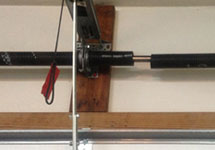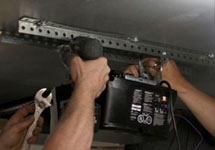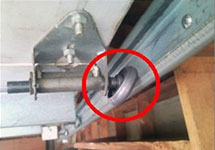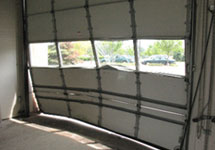Your garage door works hard every day—whether it’s protecting your vehicle, providing security, or adding curb appeal to your home or business. But like any hard-working system, it needs routine care to keep it running smoothly. At The Door Company, we believe garage door longevity starts with regular maintenance. Here’s why staying on top of upkeep isn’t just a good idea—it’s essential.
Why Regular Garage Door Maintenance Is So Important
Garage doors are made up of moving parts like springs, rollers, cables, and tracks. These components endure significant wear and tear through daily use. Without regular inspection and servicing, even a minor issue can quickly escalate into a costly repair or replacement.
Maintenance helps:
- Prevent unexpected breakdowns
- Ensure safety for your family or employees
- Boost energy efficiency and performance
- Avoid premature wear and extend the life of your door system
What Happens Without Maintenance?
Neglecting garage door maintenance can lead to:
- Noisy operation or grinding sounds from misaligned parts
- Sagging doors due to worn-out springs or cables
- Slow response times from faulty sensors or motors
- Safety hazards from malfunctioning safety features
- Expensive repairs that could have been avoided with a tune-up
Over time, skipping maintenance can shorten your garage door’s life by several years.
What a Professional Garage Door Tune-Up Includes
When you schedule a garage door maintenance service with The Door Company, you can expect:
- Full inspection of door panels, hardware, tracks, and safety sensors
- Lubrication of all moving parts
- Spring tension check and adjustment
- Track alignment
- Testing of opener and remote systems
- Recommendations for part replacements if necessary
We offer both residential and commercial garage door maintenance, so your property is always covered.
How Often Should Garage Door Maintenance Be Done?
We recommend:
- Residential doors: Annual maintenance
- Commercial doors: Biannual or quarterly check-ups, depending on usage
Frequent use in commercial or multi-family settings accelerates wear, so keeping a maintenance schedule is even more important.
Prolong Lifespan, Save Money
Investing in routine garage door maintenance pays off. Not only does it extend your door’s life, but it also:
- Reduces the chance of emergency repairs
- Improves overall performance
- Enhances security
- Maintains your manufacturer’s warranty (in many cases)
Book a Garage Door Maintenance Appointment Today
At The Door Company, we’re committed to helping you protect your investment. Whether your garage door is brand new or decades old, our expert team ensures it stays in top condition for years to come.
Contact us today to schedule your professional garage door tune-up or ask about our maintenance packages!



